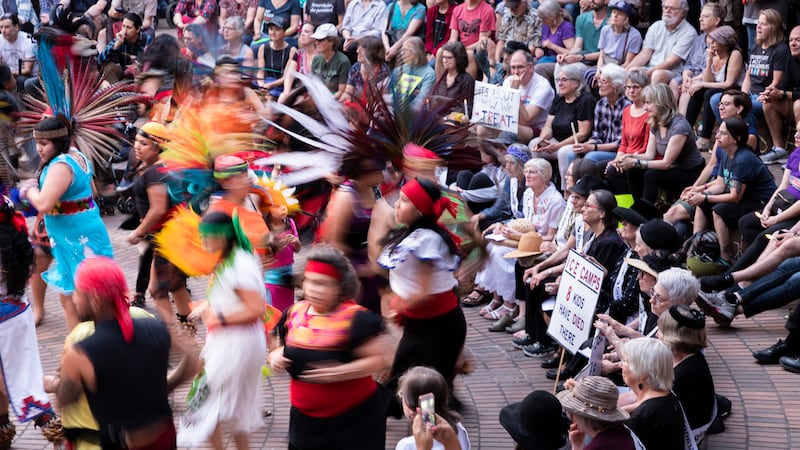For weeks, you've been seeing headlines on family separations and human-rights abuses at immigrant detention camps at the Mexico border.
The conditions at federal detention centers has led to widespread outrage and condemnation—including from U.S. Sen. Jeff Merkley (D-Portland). But the alleged abuses can also seem remote and overwhelming. What can Portlanders do about it?
WW interviewed Portland- and Oregon-based immigration law experts, immigrant-rights activists and nonprofit workers to ask about ways to help.
1. For Portlanders who can donate money — even just a few bucks
Our subjects agreed: One of the most important and useful things that Portlanders can do is to donate money to local organizations supporting immigrant rights. Even small donations can make a huge impact, said Anna Ciesielski, an immigration attorney who owns Oregon Immigration Group, a Portland-based private law firm.
"One way it makes an impact is just by actually having the funds to do the work," Ciesielski said. "And the other way is that it also sends support to the people who are doing this incredibly challenging work, that there are thousands and thousands of people out there in the world that are supporting and behind them."
Portlanders should also consider nonprofits doing the on-the-ground work at the Mexican border, interviewees said, like the Refugee and Immigrant Center for Education and Legal Services in Texas.
2. For Portlanders who can give their time
Local nonprofits especially need volunteers who are willing to do pro bono legal work and translations, particularly in indigenous Central American languages.
Whatever volunteers do, it's most important to be doing something consistently—not just in the immediate aftermath of outrage, said Alice Perry, the director of community stability and support services of Latino Network, a Latino-led education and community nonprofit.
"Consistency is going to be the thing that really helps move the dial," Perry said.
Other skills that nonprofits need include research and graphic design, along with volunteer canvassers and phone bankers, wrote the Executive Director of Unite Oregon, Kayse Jama, in an Oregon racial-justice nonprofit.
"We're constantly looking to advance policies at the local and state levels to improve quality of life for immigrants and refugees," Jama wrote, "but we don't always have the in-house capacity to do research on our own."
3. For Portlanders who can make a phone call
All of our subjects mentioned calling your Congressional representatives to tell them that you support immigrant and refugee rights. You can call the U.S. Capitol switchboard at 202-224-3121 and ask to be connected to the office of one of your U.S. Senators or Representatives.
"We need our Congressional delegation to know that supporting immigrants is a top priority for Oregonians," Jama wrote.
Ciesielski said that calling the House Committee on Homeland Security (202-226-2616) and its counterpart in the Senate (202-224-4751) would also help.
4. For Portlanders who want to show their solidarity
Marco Mejía of the Portland Immigrant Rights Coalition says joining activist groups for demonstrations and marches displays the widespread public opposition to the Trump Administration's border policies.
"They need to get engaged now," Mejía said, "and thinking that they need to get engaged, from now on, and keep going and doing and participating and doing it in the long term."
5. For Portlanders willing to help migrant youth directly
More people who are willing to sponsor or foster minors in federal immigration custody is greatly needed, Perry said.
The term "unaccompanied youth" doesn't refer to children separated from family members at the border. Rather, it usually refers to the older minors who cross the border without adults.
Sponsors are usually family members of teens who take care of them while they wait for immigration proceedings, according to the U.S. Office of Refugee Resettlement (ORR). But others who are interested in sponsoring, fostering or adopting can find state-by-state refugee resettlement nongovernmental organizations on the U.S. State Department's Refugee Processing Center website or the ORR website.
"There's no magic wand, because otherwise we would have all waved it by now," Perry said.
